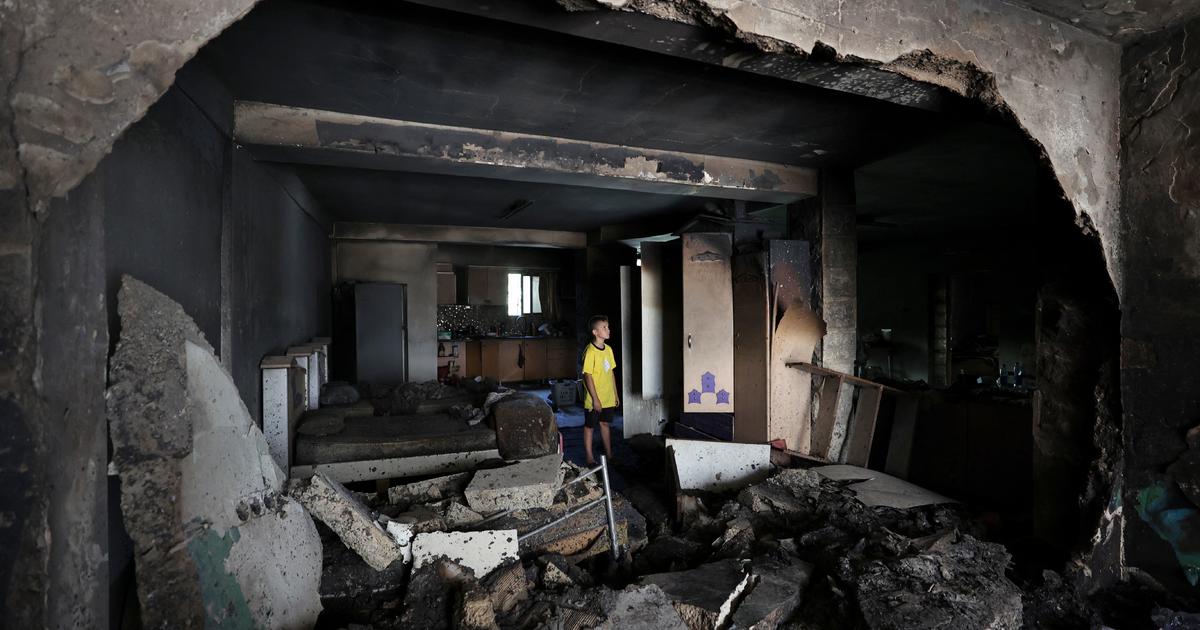The U.N.’s humanitarian agency says thousands of people living in the Jenin refugee camp in the Israeli-occupied West Bank still have no reliable access to fresh water a week after Israel’s military carried out a deadly, two-day raid on the camp. Israel has defended the raid, arguing that it was necessary to target Palestinian militant groups that operate out of the refugee camp.
“Jenin Refugee Camp, home to about 23,600 people, including 7,150 children, still lacks access to water, a week after the destruction of the local water network in a two-day operation carried out by Israeli forces,” a report from the United Nations Office for the Coordination of Humanitarian Affairs said Tuesday. It estimated that access to water for 40% of the Jenin camp’s residents was still cut.
ZAIN JAAFAR/AFP/Getty
Last week’s operation, which left at least 12 Palestinians and one Israeli soldier dead, also drove many Palestinians from their homes in Jenin and left a trail of damage and destruction in its wake, according to the report.
The U.N. agency said at least 173 people, or about 40 families, were still displaced from their homes a week after the military operation.
The report says thousands of others have returned to homes left “uninhabitable” by the Israeli assault, which included strikes by armed drones.
An estimated $5.2 million will be needed to address immediate humanitarian needs in Jenin, according to the OCHA report.
The operation was Israel’s biggest in the West Bank in almost two decades. The Israel Defense Forces struck the camp in an operation it said was aimed at destroying and confiscating weapons from terrorists.
Palestinian Authority President Mahmoud Abbas visited Jenin Wednesday to survey the damage. His visit came just days after three of his senior officials were forced to flee a funeral by heckling crowds furious at the PA’s response to the Israeli assault, the Reuters news agency reported.
Palestinian authorities have launched a ministerial committee to provide reconstruction assistance in the Jenin camp, and the U.N. has said it is in contact with local officials to coordinate those efforts.
Violence between Israel and Palestinians has escalated this year, with the West Bank on track to see its deadliest year since 2005, according to the Council on Foreign Relations.
Tension has risen steadily since Prime Minister Benjamin Netanyahu returned to power last year, bringing with him Israel’s most far-right government ever.
Netanyahu’s cabinet includes members of ultra-nationalist political parties that had long been relegated to the sidelines of Israel politics, including his new domestic security minister, who once chanted “death to Arabs” and was convicted of inciting racism.
Aside from the mounting tension with Palestinians, the new Israeli government has also faced a major backlash from Israelis who believe Netanyahu and his political allies are eroding democratic checks and balances in the country.


